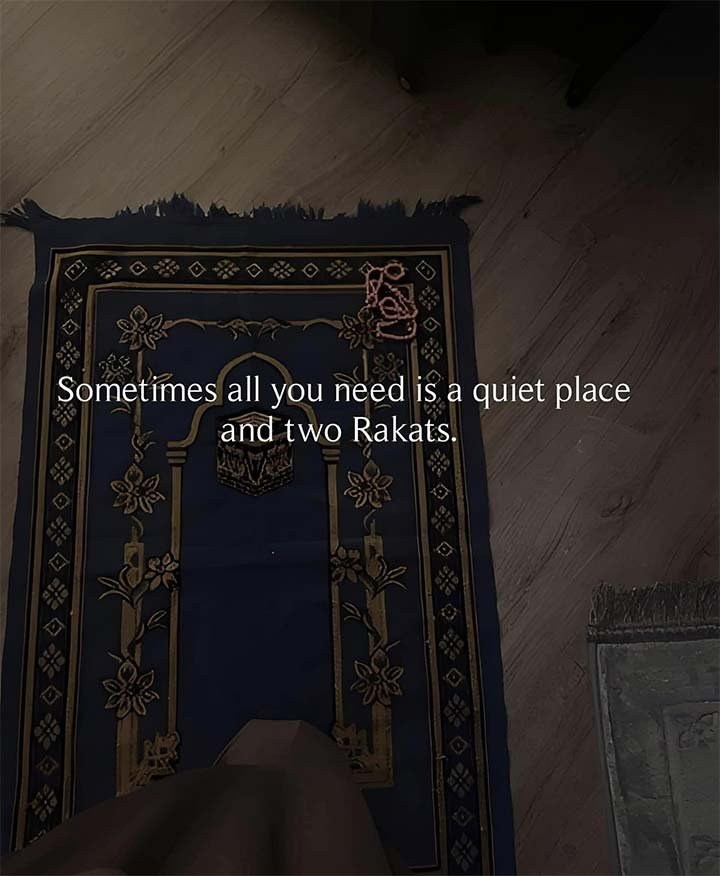Sometimes all you need is a quiet place and two Rakats
Finding Peace: The Power of Prayer in a Quiet Place
In the hustle and bustle of our daily lives, finding moments of tranquility can feel like a luxury. However, there’s a profound simplicity in the act of seeking solace in a quiet place and performing two Rakats (units) of prayer. Let’s delve into the significance of this practice and how it can bring peace and clarity to our lives.
The Essence of Solitude
“Sometimes all you need is a quiet place and two Rakats.” This quote encapsulates the idea that true peace can be found in moments of solitude. Whether it’s a secluded corner of your home, a peaceful garden, or a serene prayer room, having a quiet space allows you to disconnect from distractions and focus inward.
The Meaning of Two Rakats
In Islamic tradition, Rakat refers to a unit of prayer, typically consisting of a sequence of physical postures and recitations. Performing two Rakats symbolizes a brief but meaningful connection with the Divine. It’s not just about the physical act but also about the spiritual journey and reflection that comes with it.
Benefits of Prayer in a Quiet Place
- Mindful Reflection: Prayer in a tranquil setting encourages mindfulness and introspection. It’s an opportunity to reflect on gratitude, seek guidance, and find inner peace.
- Stress Relief: Engaging in prayer can be a form of stress relief. The act of focusing on spiritual connection helps reduce anxiety and promotes emotional well-being.
- Connection with Self: Taking time for prayer in a quiet space fosters a deeper connection with oneself. It’s a chance to nurture spirituality and cultivate a sense of inner calm.
How to Create Your Quiet Space
Creating a conducive environment for prayer doesn’t require elaborate preparations:
- Choose a Peaceful Spot: Find a quiet corner in your home or visit a serene outdoor location.
- Eliminate Distractions: Minimize noise and distractions to create a tranquil atmosphere.
- Personalize Your Space: Add elements that inspire serenity, such as soft lighting, comfortable seating, or meaningful decor.
Embracing the Practice
Whether you follow a specific religious tradition or simply seek moments of quiet reflection, the practice of finding solace in prayer transcends cultural boundaries. It’s about nurturing the spirit and finding solace in moments of stillness.
Conclusion
“Sometimes all you need is a quiet place and two Rakats” reminds us of the profound simplicity of seeking inner peace. By embracing this practice, we invite tranquility into our lives and reconnect with our spiritual selves. In a world filled with noise and distractions, taking time for quiet prayer can be a transformative experience. Let’s cherish these moments of solitude and allow them to nourish our souls.








